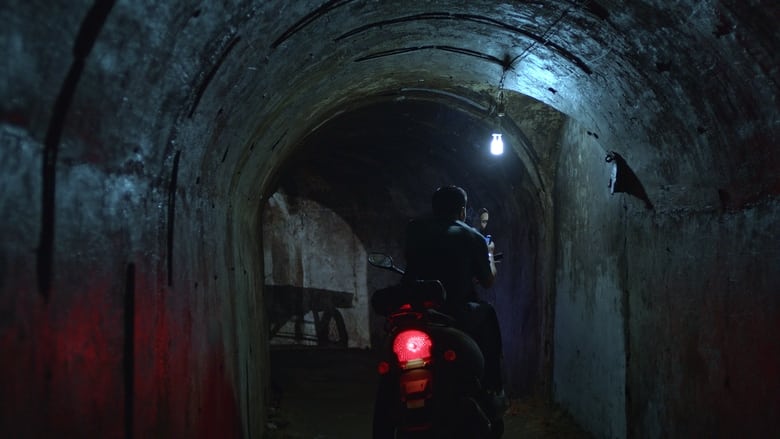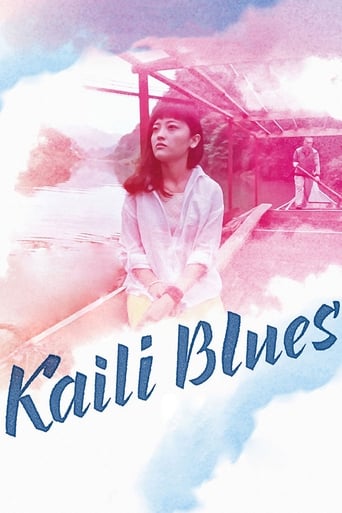Watch Kaili Blues For Free
Kaili Blues
While traveling the countryside to locate his nephew, a small town doctor finds himself interacting with people from his past and future.
Watch Trailer
Cast List



Reviews
Why so much hype?
hyped garbage
Best movie of this year hands down!
The story, direction, characters, and writing/dialogue is akin to taking a tranquilizer shot to the neck, but everything else was so well done.
Finding the picks of films from Asia to view for the ICM fest last year fascinating,I looked forward to seeing what had been selected this year. Aware of the mainstream titles from China, I was interested to find that an "indie" movie had been picked for viewing,which led to me travelling Kaili.The plot:Working at a small clinic in Kaili,one of the doctors called Chen Sheng begins to feel a need to meet one of his cousins for the first time in ages. Stepping aboard a train with no destination in mind, Sheng discovers small towns that are caught in the midst's of time.View on the film:Sending Sheng across the countryside on motorbike and train, writer/director Gan Bi & cinematographer Tianxing Wang follow each part of the journey in beautiful tracking shots,with the centre- piece being a one-take 40 minute section, that does not go for anything flashy,to breath in the rural atmosphere,with Bi keeping the camera at a distance,so the viewer can see the unfolding of everyday life Sheng witnesses. Going on the road with Sheng, the screenplay by Bi gives the dialogue a naturalistic, poetic quality,that wash the screen as Sheng, (played by a very good Yongzhong Chen) casts his eyes across every town in search of his cousin, as Sheng gets the Kaili Blues.
Chinese filmmaker Bi Gan's awards-winning debut, KAILI BLUES, in fact, the literal translation of its Chinese title is "roadside picnic", which appears to be the name of a frayed paperback collection of poems we can glance in one scene relatively near the beginning, and indeed poem suffuses in Bi's oneiric idiom, told through the voice-over of our protagonist Chen Shen (Chen Yongzhong).The opening shot is a nearly 360-degree roving take setting against in a fixed position, a sparse clinic where Chen works with an elderly doctor (Zhao), they live in Kaili, a foggy, soggy, slight crummy town in China's southeast, subtropical Guizhou province. In lieu of plying audience with Chen's backstory, Bi cogently puts beauty derived from quotidian scenery in a salient place where a laconic storyline takes its form most subtly, the place where a young boy Weiwei (Luo) and his father Crazy Face (Xie) lives is decrepit and noisy to a fault, but strikingly there is a cascade just in vicinity, which promptly gives the said place an almost surreal grandeur, also Bi manifests his ingenuity by capturing the reflection of a passing train on the wall, a blunt intrusion brutally shattering the homely equilibrium but who can deny its aesthetic signification, plus, a passing train would later give the film's ending a divine "turning-back-time" coup-de-maître.Soon it transpires that Chen is an ex-convict, and Crazy Face is his brother, but there is bad blood between them (which always has to do with family inheritance, properties in particular), Chen notices that Crazy Face is a deliberately negligent parent and suspects that he is going to sell Weiwei. So when Weiwei is sent away to Monk (Yang), a former gangster ringleader Chen once worked for and for whom he is locked behind the bars, he embarks on an excursion to look for his nephew Zhenyuan, and concurrently, to locate his colleague's old flame, who has Miao pedigree and now falls gravely ill. The magic occurs when he reaches a town called Dang Mai, where Bi employs an audacious long take running over 40 minutes following Chen and other people he meets there, in particular, a local girl Yangyang (Guo), who is going to work as a tourist guide in Kaili and a young man also named Weiwei (Yu) who overtly carries a torch for her but she seems not to reciprocate. When reality, past, dream are entwined in that bucolic loop, Bi even risks betraying the camera's own existence in order to achieve this cinematic wizardry, is this Weiwei is a future version of Chen's nephew? Does the hairdresser (Liu) he meets is a reincarnation of his deceased wife? When Chen wears the shirt which is delivered to his colleague's Miao lover, is he reliving an imaginative past to give away the cassette, the pledge of romance and courtship? There are cues and incongruities, but the whole enterprise is so remarkably done that should it be singled out as an absolute high water mark from a tenderfoot in the sphere of filmmaking. Taking the mantle from Chinese indie trailblazers (Jia Zhangke is the obvious object of reference), Bi Gan has a particular knack of marshaling amateur cast and sampling everyday settings to evince a strangely, but also affectingly enigmatic quality bordering on an amalgam of warmth, other-worldliness and allure, converging with its poetic undertow, kismet-galvanized mythos, beguiling scenery shots, peculiar camera composition and astonishing visual fluidity, plus other perverse quirks: the movie's title materializes roughly 30 minutes into its duration, and its opening credits are read out loud which harks back to Pasolini's THE HAWK AND THE SPARROW (1966, 7.5/10) where the credits are given a singsong treatment, KAILI BLUES is the whole package for art cinephiles, and more encouragingly, Bi Gan is very possible, "the" most electrifying discoveries of recent Chinese cinema.
+++Chen is a doctor-he has a irresponsible brother who mistreats his son. As the movie progresses snippets of information about his previous life are dropped, almost casually, either through dialogue or flashbacks. Indeed, one theme is the temporal intermixture. It's interesting for me to have insights into Chinese modern lifestyle shown directly through the street life (The Iron Ministry, Blind Shaft). Hence we see people going along with their business, poor people or desolated ones. Also, we see superstition, tedium, old traditions, appliances that don't work and vain attempts to fix them.The second part is almost a different film. We leave the city, often grim, with glum buildings and we enter a mostly enchanting mountain area. As a reviewer mentioned we have a long shot as in Russian's Ark by Sokurov. Perhaps this technique is associated with filming in a way also seen in music videos: several young people, the same ones, continuously pop out and into the scene. The twirling sequence culminates by Chen revealing last piece of the story of his life to a hairdresser.Now, the director pulls out an interesting feat. People borrow to each other moments of their lives and some people substitute for others. It is like being in a dream, which is constructed subtly and as if without strain. Examples: the flashlight story of Chen's coworker reappears in the story he tells to hairdresser; the latter is a substitute for Chen's ex-wife; the nephew is substituted by a motorcycle driver he meets who has the same name, draws watches, has a watch painted on his wrist, is bullied and to whom Chen offers protection-all these exactly like with his child nephew. Even more, two casually introduced persons share same nickname, Idiot. And yes we share some more themes, more common in Chinese movies: lost love, responsibility toward family, choices to correct fatalities that lead to more tragedy.---The camera filming the long shot has several failures, such as jerking or lack of focus. I can't say the movie is a masterpiece and it feels the debuting director wanted to express too much. But he made a compelling, interesting feature.
Back in 1989, as newborn baby Gan Bi was breathing in peaceful sleep, all nine Muses gathered around him, touched their pointers on his rising chest and in an exhale, blessed him with a seed of an idea.The seed grew inside him. Alongside him. All around him.And it kept growing. And growing. Until it took over, in height, in stature, in demand. Gan, much like The Little Prince and his rose, thought it his duty and honor to take care of his friend, to love and nurture it to full bloom. And when that time came, when the idea had blossomed to perfect ripeness, Gan dared to immortalize its beauty using the most encompassing medium to its fullest.Colours, sound and echoing silence, shadows, poetry and violence, the rough and the velvety, time, love, devotion, laughter, hope and sorrow -- everything, all of it comes together like a Clotho-weaved veil of mystique, heavy with droplets of ambition that weigh it dangerously with ageless wrinkles without ever breaking its threads.Can you tell I'm still engulfed in this feature's ever-folding, dreamscape palpitations?In awe, this is the most human movie I have watched, possibly ever.I am caged.And here I want to stay.





